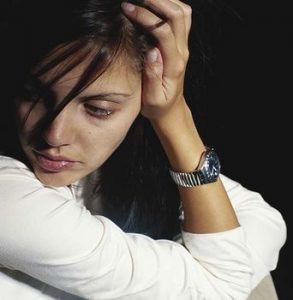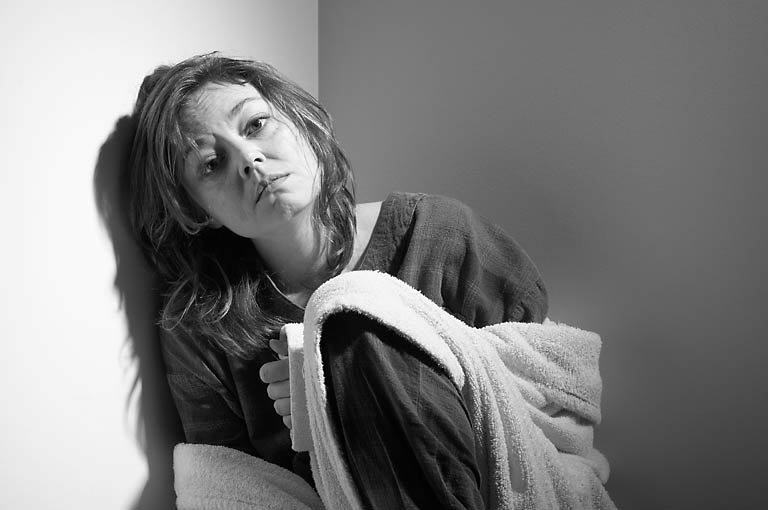What Is Clinical Depression?
Understanding what is clinical depression can help you determine if you have this disorder and what you can do about it. While depression is prevalent in our society, it is still very much misunderstood. Recognizing what is clinical depression enables a person to seek the proper treatment and prevent the illness from getting worse.
Clinical depression differs from depression in its intensity and affect on a person’s lifestyle. Depression can move to clinical depression should it be left untreated. But clinical depression can also appear in people that do not have a history of depression. 
Clinical depression affects the lifestyle of those who suffer from it by making that person unable to function normally. That person withdraws from social activities such as work, study or relationships with other people. This activity occurs for frequent periods of time lasting for weeks or even months. These symptoms may be classified as a major depressive episode, where the person seemingly shuts himself down. Major depressive episodes happen with great intensity but at less frequency.
A person suffering from clinical depression may also suffer for long term bouts but with less intensity. While the person is still able to function at work, school or society they may feel increasing difficulty in doing so. The person is unable to feel happy and feels that they can’t give their full ability in any activity.
Clinical depression is not just an ordinary from of sadness or melancholy. Because it is an illness, a person suffering from it just can’t pull through from this on their own. Clinical depression affects a person’s mental and physical health to levels that can be dangerous of left untreated.
Signs of Clinical Depression
- Inability to concentrate and function at work, school or at home
- Fatigue and lethargy for frequent periods
- Irritability and anger
- Insomnia
- Psychosis or delusional behavior
- Digestive problems
- Withdrawn and unwilling to communicate
If these symptoms happen with great intensity or at frequent intervals, then clinical depression may be the cause. When it is recognized that a person may be suffering from clinical depression, medical advice is the next step to take. Psychotherapy and medication are often prescribed but there are natural and alternative treatments also available.
What You Can Do About It
Depression is a manageable and curable illness. But it does need to be recognized first. A licensed medical professional can help you get the care you need to overcome depression. Talk to your loved ones about this as well. It is easier to get over depression with people there to support you.
Clinical Depression Treatment: Getting Treatment for Clinical Depression
With so many people suffering from depression, different kinds of clinical depression treatment have been extensively developed to help in curing this ailment. There is a wide range of clinical depression treatment which has shown great results in people with the disorder. Many people’s lives have been improved with these types of clinical depression treatment and have overcome depression as a result.
While there are several kinds of clinical depression treatment, it is best to start by consulting a psychiatrist or a physician about this. They can give the correct diagnosis and prescribed treatment. Clinical depression is a medical ailment and professionals should be the ones to know how best to treat this.
You can however approach many help centers as well as civic organizations dedicated to helping people with depression. The stigma of having depression often makes it difficult for those that suffer from it to ask for help. These civic groups can give you counseling and advice so you may know the proper way to manage and overcome depression. They can also orient you on the different available ways to get clinical depression treatment.
Available Clinical Depression Treatments
Clinical depression is caused by several factors which can overlap with one another. The treatment prescribed is also dependent on the different causes of clinical depression.
Psychotherapy Sessions are aimed to improve and adjust a person’s way of thinking. A depressed person may have certain behaviors, thought patterns and ideas that reinforce depression. Through psychotherapy, the patient is empowered to overcome such actions so they can overcome depression. This is quite effective for depression as a cause of stressful events in one’s life.
Medication is a way to manage depression by taking prescription medicine to stabilize one’s moods. Antidepressants are a popular type of clinical depression treatment. They help by helping the body retain chemicals that increase a “good mood”. Serotonin is commonly the targeted chemical which these antidepressants make use of. It is important to note that any medication may have potential side effects and licensed practitioners should be the ones that prescribe these.
Alternative Medicine is another method of clinical depression treatment. They may be quite helpful although their rate of success can vary from one person to the other. Nevertheless, you can opt to try these natural remedies to combat depression. Herbal medicine and supplements such as St. John’s Wort and Fish Oil or Omega-3 have had some success with treating depression. Before undergoing any alternative medication, do consult a professional or a doctor about this to prevent any complications.
Therapy and Physical Exercise can complement clinical depression treatment. Several therapeutic exercises such as breathing, stretching, yoga and meditation help the body and mind relax and keep focused at the same time. They are great natural stress relievers which aid in avoiding the causes of depression. Physical exercise also releases Serotonin and Endorphins which are the body’s natural defense against stress. These substances contribute to having a good mood.
Eating Healthy gives you a better chance of beating depression. Lethargy, fatigue and other symptoms of depression are aggravated or even caused by unhealthy food. A sedentary lifestyle coupled with too much fat and sugar in our food can make depression worse. A balanced diet gives our body a better way of using energy, giving less chance to be stressed out.
With the many kinds of clinical depression treatment, one should no longer be afraid of depression. It just takes time and effort, but you can be sure to beat clinical depression.












